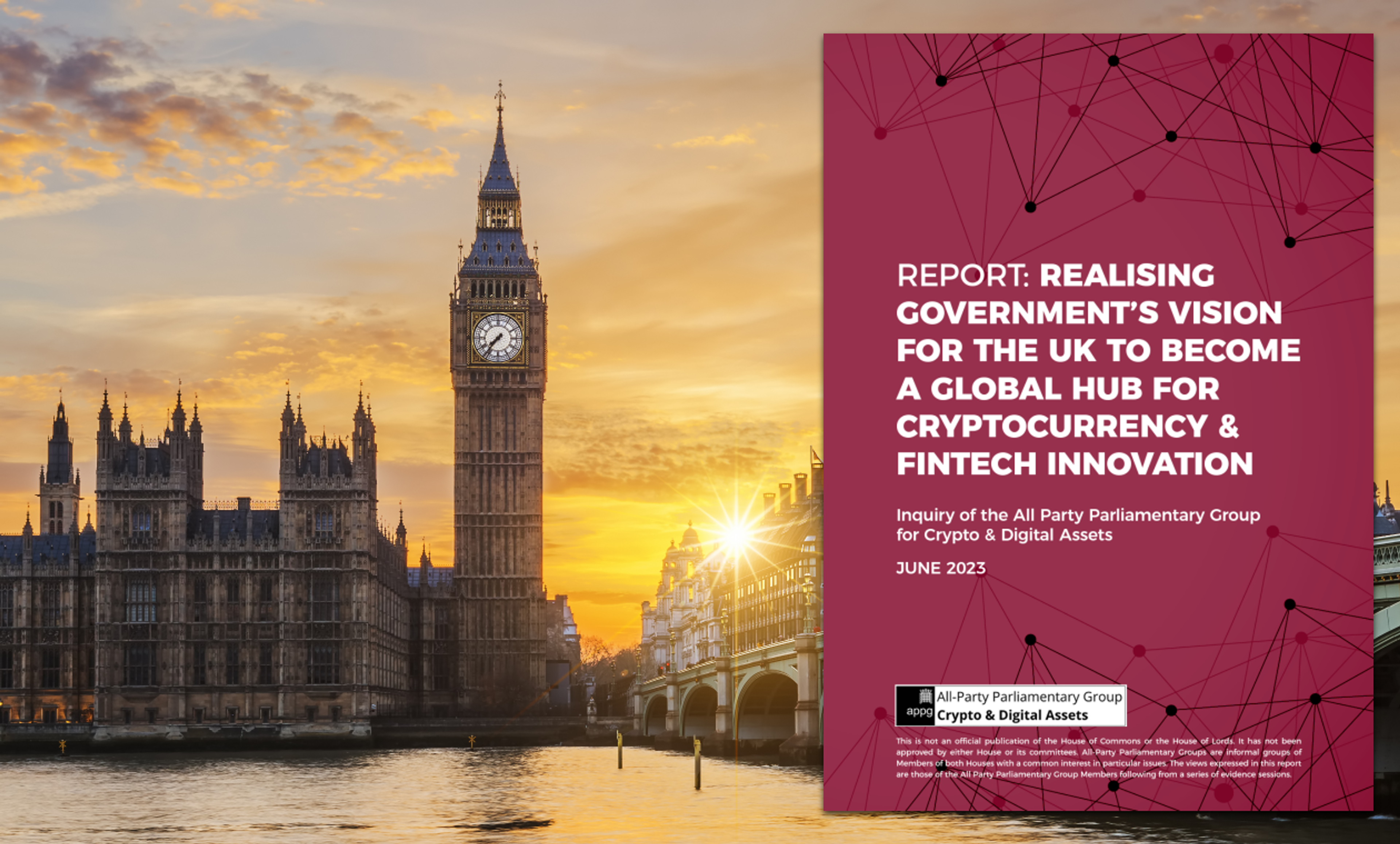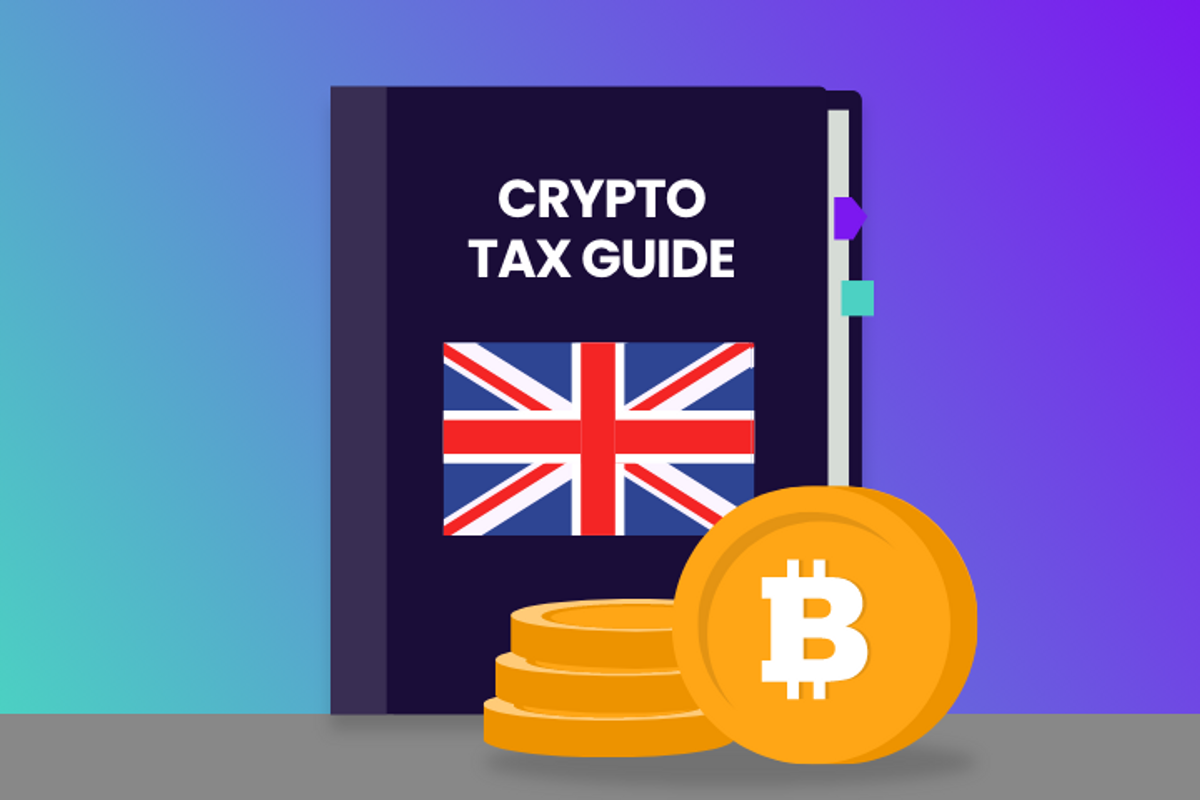
As the world of cryptocurrency and digital assets continues to evolve at a rapid pace, governments and policymakers are faced with the challenge of understanding and regulating the sector. The Crypto and Digital Assets All Party Parliamentary Group (APPG) launched an inquiry to explore the urgent need for UK regulation and better understand the opportunities and challenges presented by cryptocurrencies and digital assets. The inquiry aims to protect consumers while fostering the UK's leadership in this sector. In this blog, we will delve into the details of the published report and highlight its conclusions and recommendations.
What is The Crypto and Digital Assets All Party Parliamentary Group?
The Crypto and Digital Assets All Parliamentary Group (APPG) was formed in response to growing interest and scrutiny of the crypto sector in Parliament in order to help policymakers thoroughly understand the evolving world of cryptocurrency and digital assets. Chaired by DR Lisa Cameron MP with CryptoUK as Secretariat, it provides a forum for parliamentarians, regulators, Government and industry to discuss the challenges and opportunities of crypto and explore the need for UK regulation.
The APPG brings together industry stakeholders and policymakers to discuss and debate key issues affecting regulation, in particular:
- what a suitable regulatory framework for the sector might look like;
- the work of the UK Government and UK regulators in terms of its own crypto policy so far;
- other issues relating to the sector such as crime, protecting customers from scams, advertising, education and inclusion, international trade, environmental issues and climate change, the future of digital payments and the UK’s role in leading financial services and innovaton.
Why was the Cryptocurrency and Digital Asset Inquiry launched?
The APPG announced an inquiry into the UK Cryptocurrency and Digital Assets sector in August 2022 following the UK government's vision to position the country as a global hub for cryptocurrency. With the commitment to create favourable conditions for cryptocurrency and digital asset businesses to set up and scale up in the UK, there was a need to better understand the implications and explore the necessary regulations and the inquiry sought to establish the challenges and opportunities associated with the sector, identifying issues that policymakers would need to consider to make informed decisions.
Who contributed to the Inquiry?
To ensure a comprehensive understanding, the APPG sought views from operators, regulators, and industry experts from across the sector. Interested parties were invited to submit written submissions, and subsequent evidence sessions were conducted in Parliament to gain further insight into the considerations required.
What did the Cryptocurrency and Digital Asset Inquiry cover?
The inquiry sought views on 5 areas:
- The UK as a global home of cryptocurrency and digital asset investment
- The UK’s current approach to regulation of cryptocurrency and digital assets
- The role and current approach of UK regulators including the Bank of England, the FCA and the ASA in relation to cryptocurrency and digital assets
- Central Bank Digital Currencies
- Consumer Protection and Economic Crime
Conclusions and Recommendations of the Inquiry
The published report of the APPG's inquiry highlights over 50 recommendations. Here are some of the key findings:
1. The UK as a global home of cryptocurrency and digital asset investment
The UK is well positioned to become a global hub for cryptocurrency and digital asset investment. Government should seek to build on existing strengths as a leader in financial services and a hub for Fintech investment as it seeks to realise its vision for the UK cryptocurrency and digital asset sector and to leverage the UK’s post Brexit opportunities to chart its own bespoke course in terms of regulation.
The UK should seek to harness the significant opportunities in terms of economic growth, and the potential for job creation in its approach towards the sector.
Government should look to create the right conditions to attract inward investment in the UK cryptocurrency and digital assets sector and should also support development of businesses that have already set up in the UK so as not to risk losing growth to other jurisdictions.
Government should explore the potential for improved access to financial services for the 1.2 million people in the UK who do not have access to mainstream financial services. We encourage further research into the potential for digital financial inclusion.
Government should be mindful of the potential risks presented by the continued growth and popularity of the cryptocurrency and digital asset sector, particularly in terms of any potential risks to financial stability, consumer protection, and risks identified from economic crime.
2. The UK’s current approach to regulation of cryptocurrency and digital assets
The Inquiry heard that the industry is overwhelmingly in support of regulation and Government and regulators should seize the opportunity to work with industry to help develop fit for purpose regulation.
While the progress being made is welcome, thus far much of it has focused on specific issues. It was felt that there still needs to be a clearly defined overarching strategy and an action plan to deliver on the Government’s vision for the UK.
Regulatory clarity will be a key factor in attracting inward investment in the UK and Government should ensure that there are clear pathways for legitimate and responsible businesses to operate and grow in the UK, while acknowledging the clear need to sift out bad actors.
The Government should ensure that regulation is balanced and proportionate to protect consumers and not to stifle innovation, whilst also ensuring that any regulatory regime is agile enough to adapt easily to the fast pace of change in the sector.
Other jurisdictions are making significant headway in delivering legal and regulatory certainty and there is a real risk of the UK being left behind. The Government must move within a finite window of opportunity within the next 12-18 months to ensure early leadership.
Government should ensure that it has the sufficient resources and expertise to deliver on its vision. Government and regulators should consider developing specialist knowledge and expertise within Departments in order to properly understand and regulate the sector.
UK cryptocurrency and digital assets firms are struggling to secure access to UK banking services which could fundamentally undermine the Government’s ambition for the UK to become a cryptohub and could be a significant barrier to growth and innovation. The Government should take urgent steps to ensure that there are clear pathways for legitimate, responsible companies to access fundamental services to operate such as adequate insurance and banking facilities. Guidance on how traditional financial institutions can work with the sector productively would be welcome and Government should seek to use its convening power to help facilitate a dialogue between the banking and cryptocurrency and digital assets industry on this issue.
3. The role and current approach of UK regulators including the Bank of England, the FCA and the ASA in relation to cryptocurrency and digital assets
Following the collapse of exchange FTX and others the cryptocurrency and digital asset industry must seek to rebuild the trust of regulators and demonstrate its commitment to high standards of regulatory compliance and good corporate governance.
At present the process for cryptocurrency and digital asset businesses to enter the UK is too burdensome and lengthy, resulting in many businesses ultimately choosing to invest outside of the UK. Government must ensure that regulators are properly equipped to be able to deliver the Government’s streamlined vision for the UK sector.
We have concerns as to whether authorities and regulators have sufficient resources and the appropriate knowledge and skills internally to deliver on their new cryptocurrency and digital asset responsibilities. The FCA registration regime is in need of significantly greater resource to ensure firms’ applications can be reviewed within a reasonable period of time. All UK regulators related to the sector should have dedicated cryptocurrency and digital assets units with proper resource and sector understanding to deliver on their responsibilities.
It is important that Government takes a consistent approach to the promotion of cryptocurrency and digital assets to that of other similar-risk investments and ensures that the UK has robust yet fair standards for the promotion of these assets, whilst ensuring that there is a level playing field for all legitimate businesses that are licensed in the UK.
There is a need for improved coordination between Government and regulators in delivering the Government’s vision for the UK to be a global cryptocurrency and digital asset hub. Government should also ensure that there is continued and meaningful dialogue and engagement between regulators and industry
4. Central Bank Digital Currencies
The APPG welcomes the proactive steps that Government is taking alongside the Bank of England to explore the potential of a digital pound. The public and consumers are increasingly embracing more digital means of payments and it is right that Government and regulators too respond to this trend and actively explore the need for further regulation in this space.
Access to cash should be protected and we welcome the steps that Government is taking to legislate to protect access to cash alongside any future digital pound.
While there are a number of potential benefits, Government should carefully consider and seek to mitigate any potential risks surrounding the development and potential introduction of a digital pound, particularly in relation to financial stability, privacy and security risks.
As other countries move at pace to develop and pilot their own CBDCs, the UK must be careful not to be left at a disadvantage. There could be first-mover advantages, however, there is also value in a second mover approach allowing the UK to benefit from lessons learned by other countries. Government must decide if it wants to lead or follow in relation to CBDCs.
Any decision to introduce a digital pound in the future will be profound and will require significant trust amongst the public and consumers. Government must ensure that there is sufficient and appropriate education and awareness which will be a determining factor in the success of any future digital pound.
5. Consumer Protection and Economic Crime
If the UK is serious about becoming a global cryptocurrency and digital assets hub, high standards of protection for consumers will be a key factor in the success of the Government’s vision. Government must ensure that consumer protection is at the heart of any future regulatory framework.
The level of understanding of cryptocurrency amongst consumers remains low. Improving consumer awareness and the potential risks associated with it should be a top priority and will be a key factor in protecting consumers from harm. There needs to be a renewed and joint effort by industry and policymakers to improve public digital finance education. The government may also wish to consider improved digital financial education in the school curriculum.
Consumers are often still unaware of the potential risks and also what to do and where to go if they fall victim to a scam. Industry must do more to help raise awareness of the risks and we would like to see a joined up, coordinated and concerted effort by all players including industry, regulators, law enforcement and government to clamp down on scams.
Government should be alive to the emergence of new types of fraud and scams in relation to cryptocurrency and digital assets where criminals have sought to exploit consumers and also the risks posed by scams being promoted over social media. They must ensure that regulators, and law enforcement continue to monitor and adapt to the latest techniques used by criminals. The Government should also put further consideration into guidance, support and redress for victims of scams.
Given the cross-border nature of cryptocurrency and digital assets, coordinated efforts between global regulators are required. Government should seek to use its leadership position through international forums such as the G7 and others to push for further action on global standards for cryptocurrency and digital assets regulation.
Read the full report.
Read the summary report.
Close - What does the Cryptocurrency and Digital Asset Inquiry mean for UK crypto?
The inquiry is a great step forward for UK crypto. It recognises that the growth of cryptocurrency and digital assets presents huge opportunity for the UK to become a leader in financial services and a hub for Fintech investment. It also highlights barriers that need further investigation and resource. Government are standing firm on their intentions to regulate cryptocurrency and these recommendations from the APPG will help to ensure that regulation protects consumers and supports rather than hinders development of the industry.
The APPG report clearly shows that cryptocurrency is here to stay and highlights the need for comprehensive regulation, without which there are considerable risks in terms of consumer protection, financial stability and economic crime. As well as protecting consumers, regulation also has the opportunity to make the UK more desirable to businesses who are currently being pushed outside of the UK because of issues like the lengthy burden to register and the struggle to access banking and financial services.
In the US, the ongoing U.S “war on crypto” has influenced a decline on crypto related activity according to a16z’s report “State of Crypto”. In the report they say that "banning new business models or technologies undermines American values and drives innovation and jobs elsewhere.”
Their announcement, this week, to open their first international office in the UK, suggests that they favour the UK’s approach. The company said that crypto "can only succeed with a clear regulatory regime that provides an open pathway for startups while also protecting consumers from fraud and manipulation”. They also said that "UK policymakers and regulators are taking an approach that is uniquely tailored to blockchain and digital asset regulation.”
There is great opportunity for the UK to fulfil its ambition of becoming a crypto hub but as other countries, particularly those in Europe are moving quickly, the UK needs to move fast to develop clear regulation to avoid loosing out - there is a finite window of 12-18 months to ensure early leadership.
To develop a regulatory framework fit for purpose there must be collaboration and engagement between industry, Government, regulators and central banks. And for regulation to succeed, there must be a joined up, coordinated approach across all departments and sufficient resource, training and education for all involved.
Overall, we’re really excited by the APPGs inquiry, it’s a really positive move for the UK crypto industry that highlights how we can reach the Government’s crypto hub ambition. It clearly defines both the opportunities and challenges and sets the foundations for further discussion that will help drive regulation forward. This progress will also certainly help us on our mission to push for change in tax legislation to make crypto tax simpler for UK investors.


